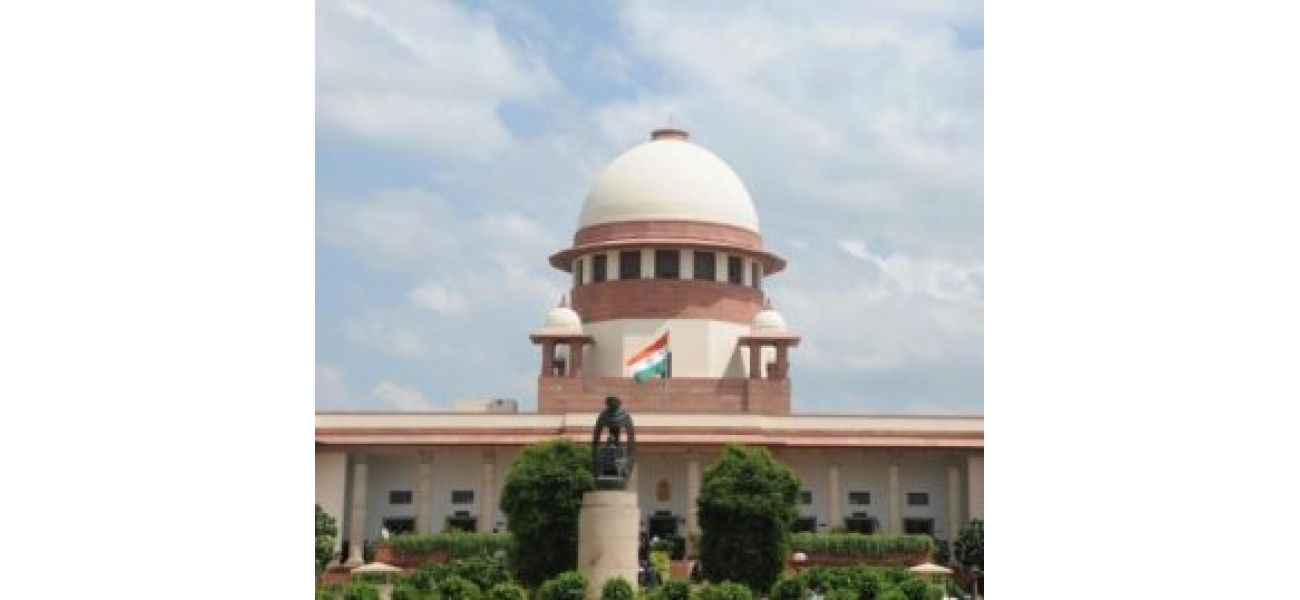SC temporarily halts Lokpal decision allowing complaints against current HC judge, citing concerns.
"The Supreme Court halted the implementation of the Lokpal order which allowed complaints against a sitting high court judge, citing concerns for judicial independence."
February 20th 2025.

The Supreme Court of India made a significant decision on Thursday, putting a hold on the Lokpal's order to entertain complaints against a sitting high court judge. The court found this order to be "very, very disturbing" and a threat to the independence of the judiciary. The special bench, headed by Justice B R Gavai, issued a notice and requested responses from the Centre, the Lokpal registrar, and the individual who filed the complaints against the judge.
The Solicitor General Tushar Mehta, who represented the Centre, argued that a high court judge should not fall under the jurisdiction of the Lokpal and Lokayuktas Act of 2013. The bench, which also included Justices Surya Kant and Abhay S Oka, ordered the complainant to keep the judge's identity confidential and not disclose it to anyone. They also directed the registrar to serve the complainant through the high court registrar of the district where the complainant resides.
The apex court took up the suo motu proceedings based on the Lokpal's January 27th order. The court issued a notice to the Union of India, the Lokpal registrar, and the complainant, and put a stay on the impugned order. As the special bench convened, Justice Gavai informed Mehta that they plan to issue a notice to the Union of India. Senior advocate Kapil Sibal, who was also present, offered to assist the bench in handling the matter. Justice Gavai remarked that the situation was "very, very disturbing," and Sibal requested a stay on the Lokpal's order, noting that it was "fraught with danger." He also suggested that a law should be established to address this issue.
The bench scheduled the next hearing for March 18th, subject to the Chief Justice of India's directions. They noted that Sibal and another senior advocate had offered to assist the court, given the matter's significance concerning the independence of the judiciary. Justice Gavai also pointed out that the Lokpal's jurisdiction had been stayed, and the bench was aware of the potential consequences of this order. The Lokpal had passed this order in response to two complaints filed against a sitting additional judge of the high court. These complaints alleged that the judge had influenced another district judge and a judge of the same high court to favor a private company in a lawsuit against the complainant. The complainant claimed that the named high court judge was previously a client of the private company when he practiced as an advocate.
In its order, the Lokpal directed the complaints and relevant materials to the Chief Justice of India's office for consideration. They also deferred the complaints' consideration for four weeks, keeping in mind the statutory timeframe to dispose of the complaint under Section 20 of the Act of 2013. The Lokpal bench, led by Justice A M Khanwilkar, made it clear that their order only dealt with the issue of whether high court judges fall under the ambit of Section 14 of the Act of 2013. They did not examine the merits of the allegations.
The Solicitor General Tushar Mehta, who represented the Centre, argued that a high court judge should not fall under the jurisdiction of the Lokpal and Lokayuktas Act of 2013. The bench, which also included Justices Surya Kant and Abhay S Oka, ordered the complainant to keep the judge's identity confidential and not disclose it to anyone. They also directed the registrar to serve the complainant through the high court registrar of the district where the complainant resides.
The apex court took up the suo motu proceedings based on the Lokpal's January 27th order. The court issued a notice to the Union of India, the Lokpal registrar, and the complainant, and put a stay on the impugned order. As the special bench convened, Justice Gavai informed Mehta that they plan to issue a notice to the Union of India. Senior advocate Kapil Sibal, who was also present, offered to assist the bench in handling the matter. Justice Gavai remarked that the situation was "very, very disturbing," and Sibal requested a stay on the Lokpal's order, noting that it was "fraught with danger." He also suggested that a law should be established to address this issue.
The bench scheduled the next hearing for March 18th, subject to the Chief Justice of India's directions. They noted that Sibal and another senior advocate had offered to assist the court, given the matter's significance concerning the independence of the judiciary. Justice Gavai also pointed out that the Lokpal's jurisdiction had been stayed, and the bench was aware of the potential consequences of this order. The Lokpal had passed this order in response to two complaints filed against a sitting additional judge of the high court. These complaints alleged that the judge had influenced another district judge and a judge of the same high court to favor a private company in a lawsuit against the complainant. The complainant claimed that the named high court judge was previously a client of the private company when he practiced as an advocate.
In its order, the Lokpal directed the complaints and relevant materials to the Chief Justice of India's office for consideration. They also deferred the complaints' consideration for four weeks, keeping in mind the statutory timeframe to dispose of the complaint under Section 20 of the Act of 2013. The Lokpal bench, led by Justice A M Khanwilkar, made it clear that their order only dealt with the issue of whether high court judges fall under the ambit of Section 14 of the Act of 2013. They did not examine the merits of the allegations.
[This article has been trending online recently and has been generated with AI. Your feed is customized.]
[Generative AI is experimental.]
0
0
Submit Comment





